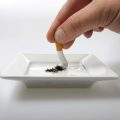Have ever wondered about the quality of drinking water coming out of your tap? In spite of all the testing efforts of safety precautions, sometimes we end up drinking cloudy, unclear fluid that tastes strange. This could only mean that additives and pollutants are present in the water we drink, and even though this doesn’t pose a serious threat to healthy adults, it might endanger the health of children, pregnant women and elderly.
Bottled water might come up as a straightforward option, but considering the price and the fact that you won’t be able to maintain constant supplies at all times, installing a water filter is the only rational solution left. So if you are interested to find out the best way to make your water unpolluted and healthy, read our suggestions.

Know what type of pollution you are dealing with
Whether you are concerned if your water contains high levels of lead, which can be specific to your home, or you wish to be familiarized with the number of microorganisms and coagulating factors, you can ask your water utility company for a full report on the contents of your water. Once you have noted what your water consists of, read on to find out if water filter is a good option for your home.
Water Filter Pros:
- Removing lead prior to drinking and preventing this harmful substance from entering your body
- Preventing over a thousand known toxins that might be present in drinking water
- Reducing the risk of gastrointestinal diseases by 30%, also lowering risk of colon, bladder and rectal cancer by removing chlorine, water-borne giardia and cryptosporidium without the need for water boiling
- Retaining pH balance of drinking water while preserving healthy mineral deposits
- Greatly leading to a much better overall health

Types of filters
Having a variety of filter choices leaves many options to deal with. Looking from a point of use, you can make a choice from filter pitchers, a unit under the sink or faucet filters if localized just in one place and one point of use, or you can choose one entry unit for the whole household, says a reputed Sydney-based plumber. This means you can decide whether you would like a filter installed just in the kitchen where healthy source of water is most needed, or to cover the entire property with one filter applied to the main water pipe.
Differences in mechanism of filtration
- Ultraviolet disinfection filter that uses UV light to obliterate bacteria and microorganisms. There are two classes – type A, which protects from harmful viruses and bacteria, and class B that causes bacteria to be inactive.
- Active carbon or charcoal filters containing positively charged carbon, which remove chlorine and decrease a great number of other pollutants and make the water taste batter
- Reverse osmosis filter equipped with a membrane that prevents passing of contaminants. It’s effective against a number of parasites, nitrate, heavy metals, arsenic, selenium and other dissolved elemental salts.
- Distiller, the filter which boils water first and condensates it after. They are mostly used to remove barium fluoride, selenium, sodium, heavy metals (lead, mercury, cadmium) and arsenic as well.
- Ceramic filter, which prevents bacteria in water having a pore sized around 0.2 micrometers or smaller, used as a least expensive solution.
Few tips to keep in mind
Most of the filters use a combination of the listed mechanisms, and the most important thing is to pick a right type for your home while making sure it is certified by a reputable and independent agency. Make sure the chosen filter abides by the NFS standard as it is made by a reputable product evaluation company. Read the fine print to make sure not only high quality is guaranteed, but also a foolproof effectiveness.





























No Comments
Leave a comment Cancel